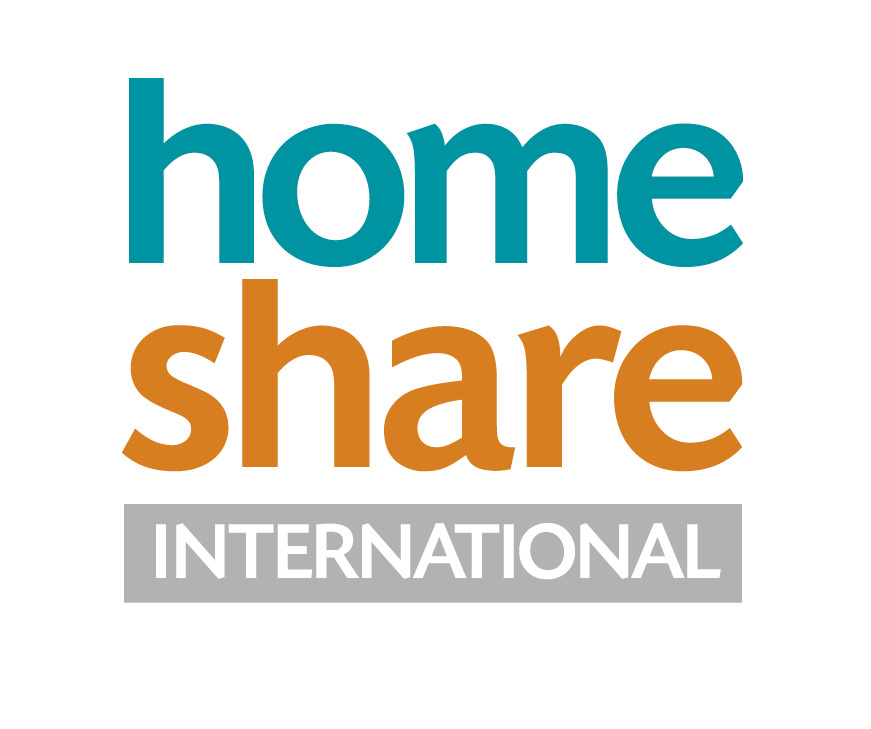Safeguarding relates to ensuring that vulnerable people are not exploited or abused in any way, but also that they retain a sense of autonomy over their life. Sharers are not expected to be qualified or experienced in safeguarding, and it is most unlikely that a Sharer will be faced with a potential safeguarding issue. However, we do ask all potential Sharers to read the information provided below, and also the fictional examples, so that they are more familiar with and informed on the subject. When moving into an arrangement Sharers are provided with a Welcome Booklet which includes Share and Care Homeshare’s full safeguarding policy and procedures.
There are Six Principles of Adult Safeguarding
1 – Empowerment –People should be supported and encouraged to make their own decisions and informed consent... In the case of a safeguarding issue within a Homeshare, the person who is at risk should be consulted about the outcomes and asked what they want from the safeguarding process and are directly informed about what happens. A person who has, for instance, Dementia, and who has fluctuating capacity and is only able to retain the information relevant to a decision for a short period, should not be regarded as unable to make the decision.
Fictional scenario: When the Sharer, Nadia, returns from university she notices on a number of occasions that the gas hob has been left on by the Homeowner, John. She is concerned that this could lead to an accidental fire or injury to John.
Appropriate course of action: Nadia needs to raise this with a family member in order to discuss potential solutions, and a tactful way to raise it with John. Once it has been discussed, John should be told what the problem is and involved in the decision making process. It may be decided, for example, that an electric hob would be safer.
2 – Prevention – It is better to take action before harm occurs…As a Homesharer that means reporting to Share and Care Homeshare any concerns of abuse you might have about others who support your Householder. A safeguarding issue could also be to do with dangers in and around the home. Remember that someone with fluctuating mental capacity might be someone more at risk.
Fictional scenario: The Sharer, David, notices that the Householder, Emmeline, who has dementia and is quite unsteady, has been drinking more than usual, and is helping herself to wine in the daytime, as well as topping up her evening glass of wine.
Recommended course of action: David should raise this with a family member, so that they are aware of the development. He should also get in touch with Share and Care who can offer suggestions, such as buying non-alcoholic/watering down wine, so that Emmeline doesn’t feel that she is being banned from enjoying a glass of wine.
3 – Proportionality –The least intrusive response appropriate to the risk presented… Share and Care Homeshare would ensure that a timely, professional and ethical response is made to any adult who may be experiencing abuse, and ask a Sharer to ensure that they adopt a similar response. Responses to risk should take into account the Householder’s preferred outcomes or best interests.
Fictional scenario: The Sharer, Clara, notices that the Householder, Beth, is behaving in a very out-of-character manner; she accuses Clara of stealing some of her jewellery and becomes aggressive and insulting. Clara feels upset and says that she is uncomfortable living with someone so rude and unpredictable.
Appropriate course of action: It is important that this is reported to a family member, or Share and Care, as it could be a sign that Beth’s dementia is worsening. It is very important to understand that uncharacteristic aggressive behaviour is a common side effect of a urinary tract infection, pneumonia or some other infection, which needs to be diagnosed and treated promptly with a course of antibiotics, which would alleviate the Sharer’s concerns moving forward.
4 – Protection – Support and representation for those in greatest need…As a Homesharer you will be provided with help and support to report any abuse, as would the Householder and their family if relevant. And you will be supported to take part in the safeguarding process to the extent to which you want to do so and to which you are able.
Fictional scenario: When the Householder, Mrs Eckhert’s, grandson visits for tea, the Sharer, Priti overhears him discussing lending him a large amount of money, and showing her how to make a money transfer into his bank account.
Appropriate course of action: Priti should call Share and Care, who can decide who would be the most person (eg. family member, advocate) to discuss this with; Priti might be asked to corroborate what she has witnessed.
5 – Partnership – Local solutions achieved via services working with their communities …Share and Care Homeshare recognises the part they have to play in preventing, detecting and reporting neglect and abuse in any Homeshare. The person who is deemed to be at risk should always feel confident that information will be appropriately shared in a way that takes into account its personal and sensitive nature. If other agencies are involved, the person at risk should be confident that agencies will work together to find the most effective responses for their situation.
Fictional scenario: The Sharer, Janice, returns home from work and notices that the Householder, Margaret, seems a bit flustered and sad. Janice asks how she is and Margaret tells her that the Carer, who visits every afternoon, has called her a bad name and pushed her roughly when assisting her to have a shower.
Recommended course of action: Janice should ask Margaret whether she is happy for Janice to contact a family member or Share and Care about the incident, so that it can be officially raised with the Care agency. If this action is taken, Margaret needs to be kept abreast of the situation and involved in the outcome.
6 – Accountability – Accountability and transparency in delivering safeguarding…In the case of the role of a Homesharer, we want a Sharer to be clear about their role and the responsibilities of all those involved in the solution to any safeguarding issue.
Fictional scenario: The Householder, Vivienne, starts receiving regular visits from Beatrice, the daughter of an old friend. The Sharer, Aisha, finds Beatrice’s manner bossy and overbearing to both Vivienne and herself, and she notices on more than one occasion the strong smell of alcohol on Beatrice’s breath.
Recommended course of action: Aisha needs to tactfully raise her concerns about Beatrice to a family member of Vivienne, keeping Share and Care informed, so that the situation can be monitored and Beatrice can be confronted if matters escalate. This not only protects the Householder from potentially volatile behaviour, but also protects the Sharer, who might find themselves being falsely accused by a potentially manipulative person.




